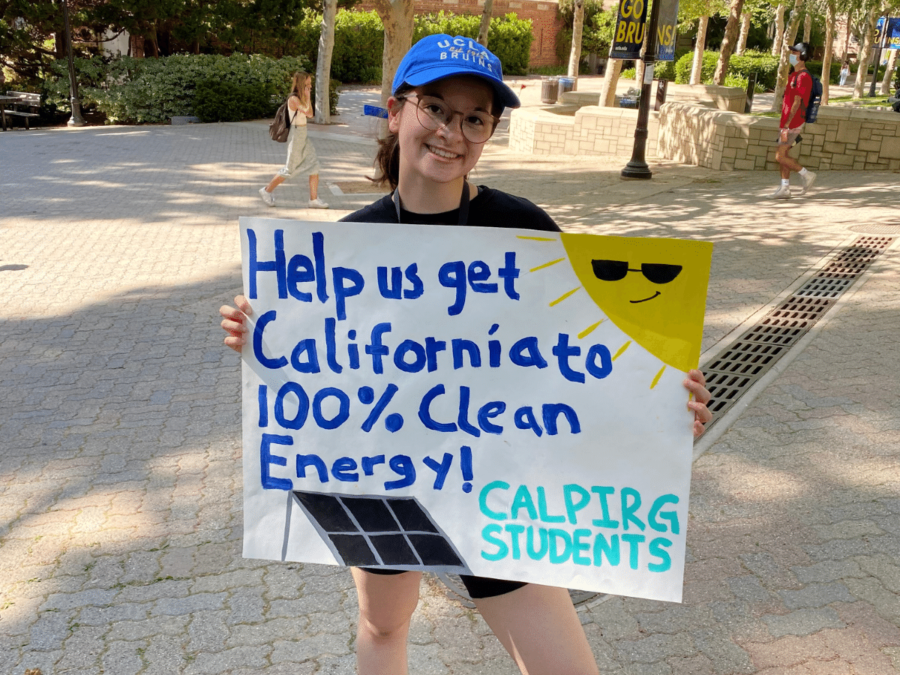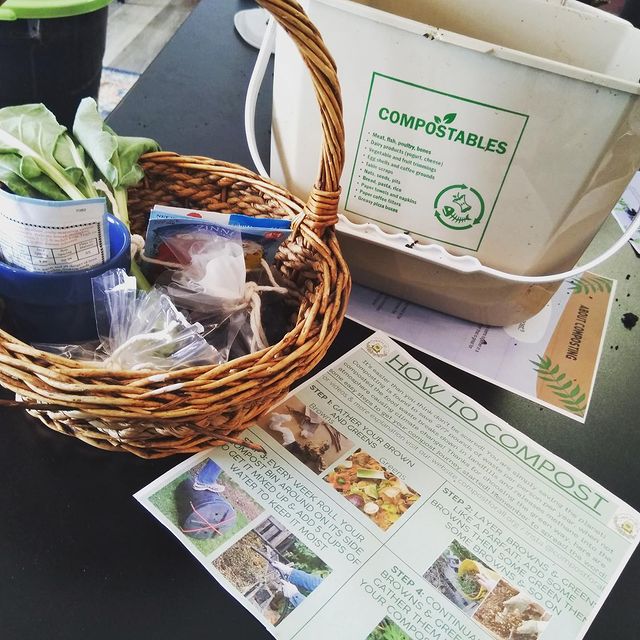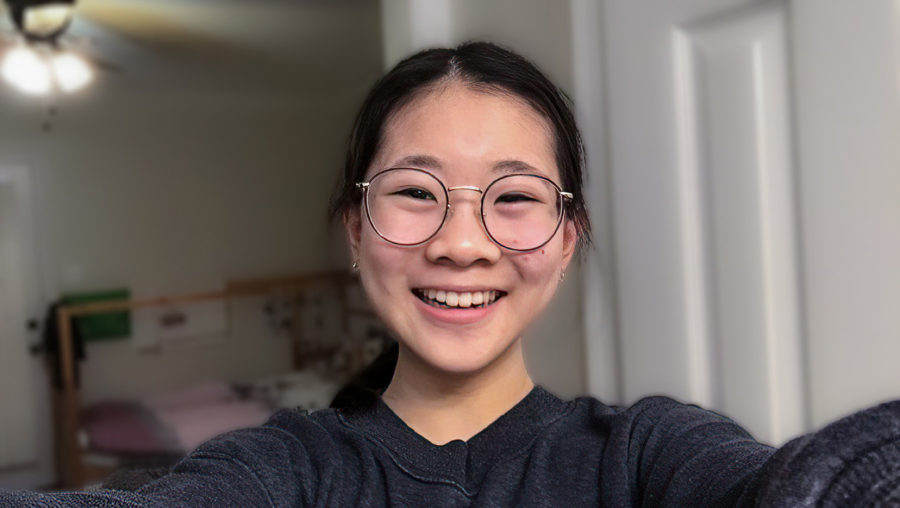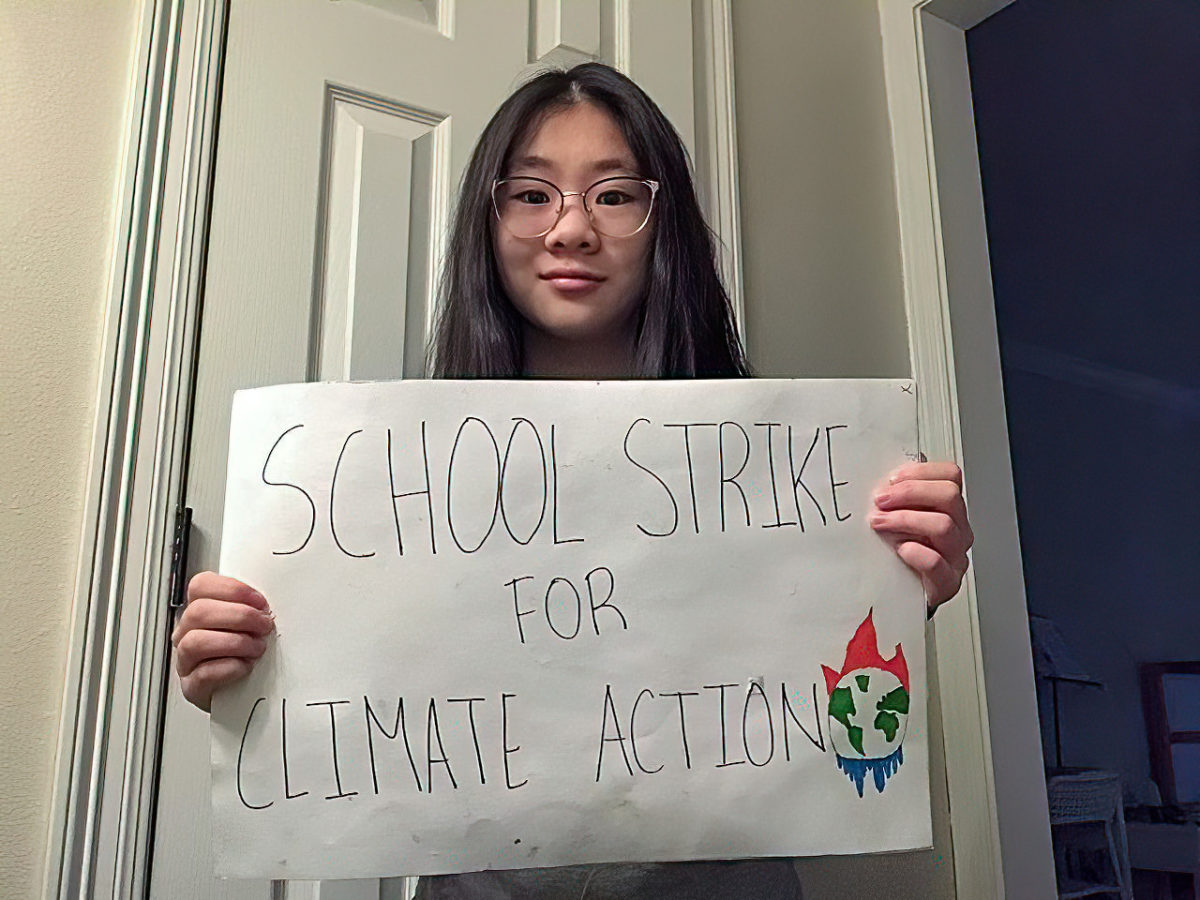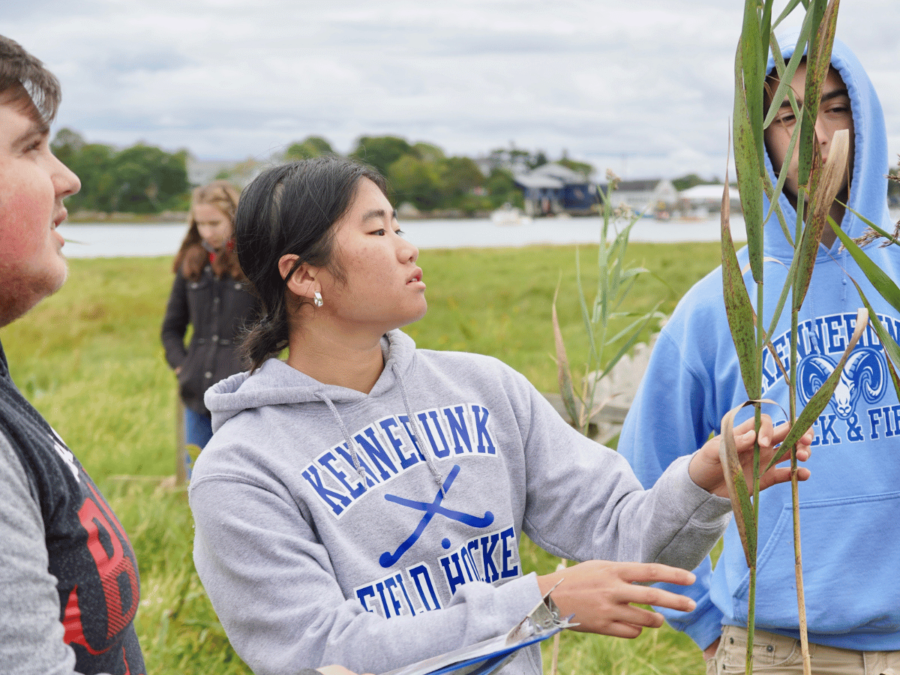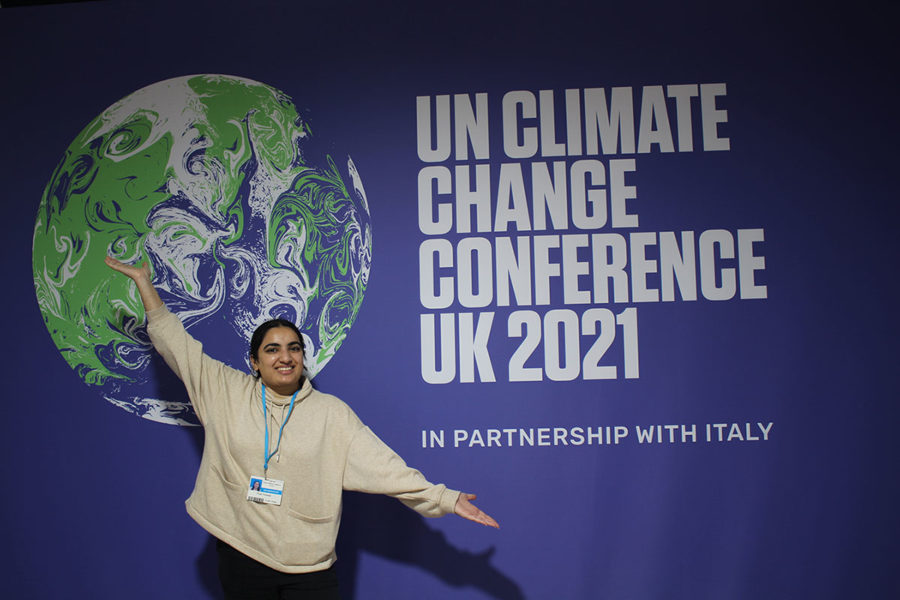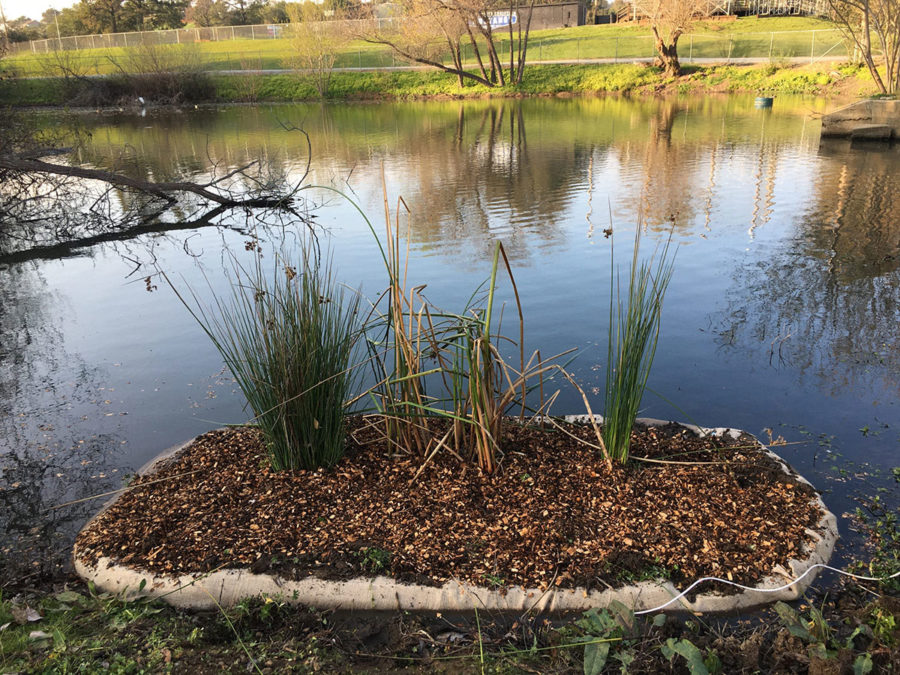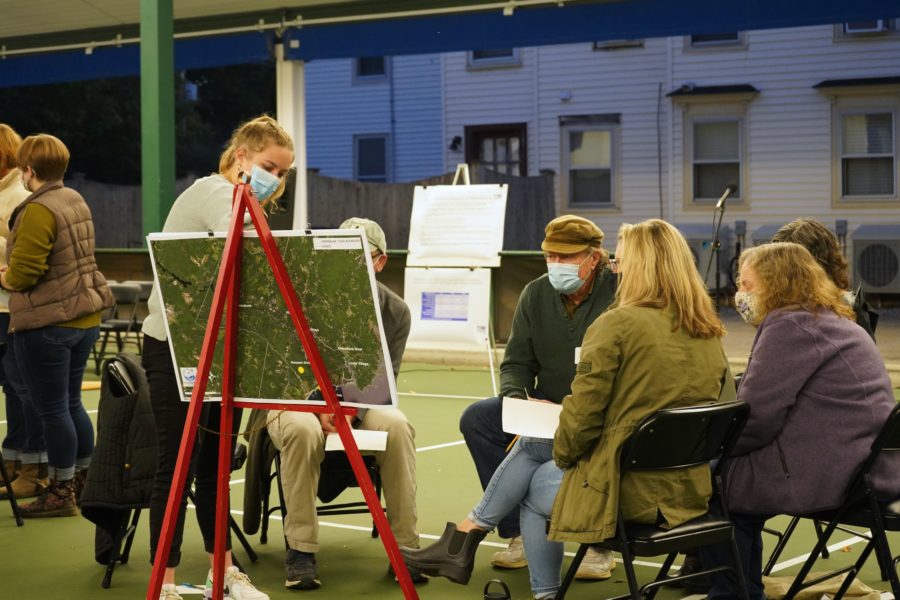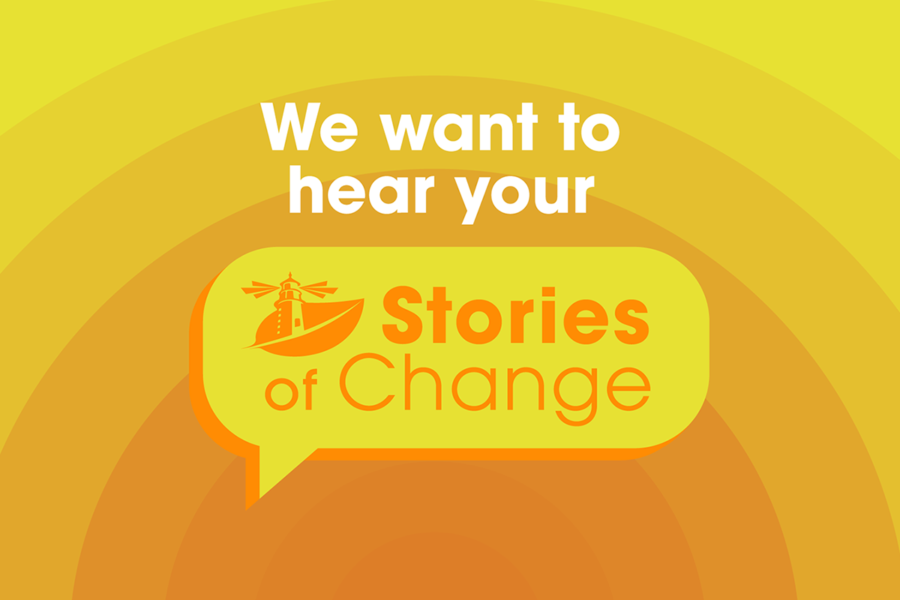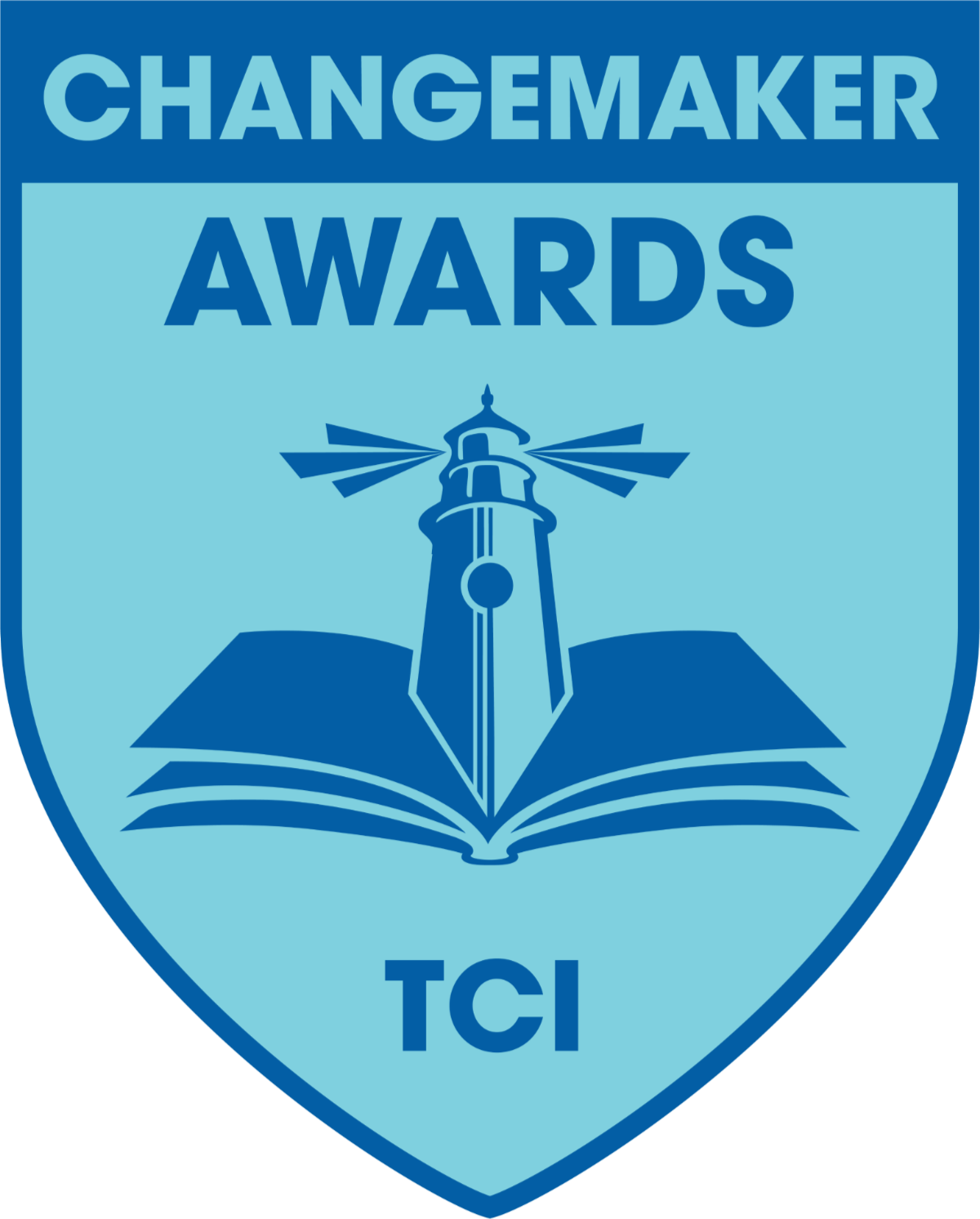Write it. Speak it. Show it.
Share it for the World.
Your Story of Change will inspire other youth and communities to take meaningful climate action.
In connection to TCI programs, tools and events, your Stories of Change are shaping the way communities across the nation and beyond react to climate change. These stories inspire attention and action to the issues we are all facing.
Your Story can encourage other young people to act and bring solutions to their own communities. Join TCI in empowering youth voices for climate action through sharing YOUR climate action story!
Get inspired by Stories of Change.
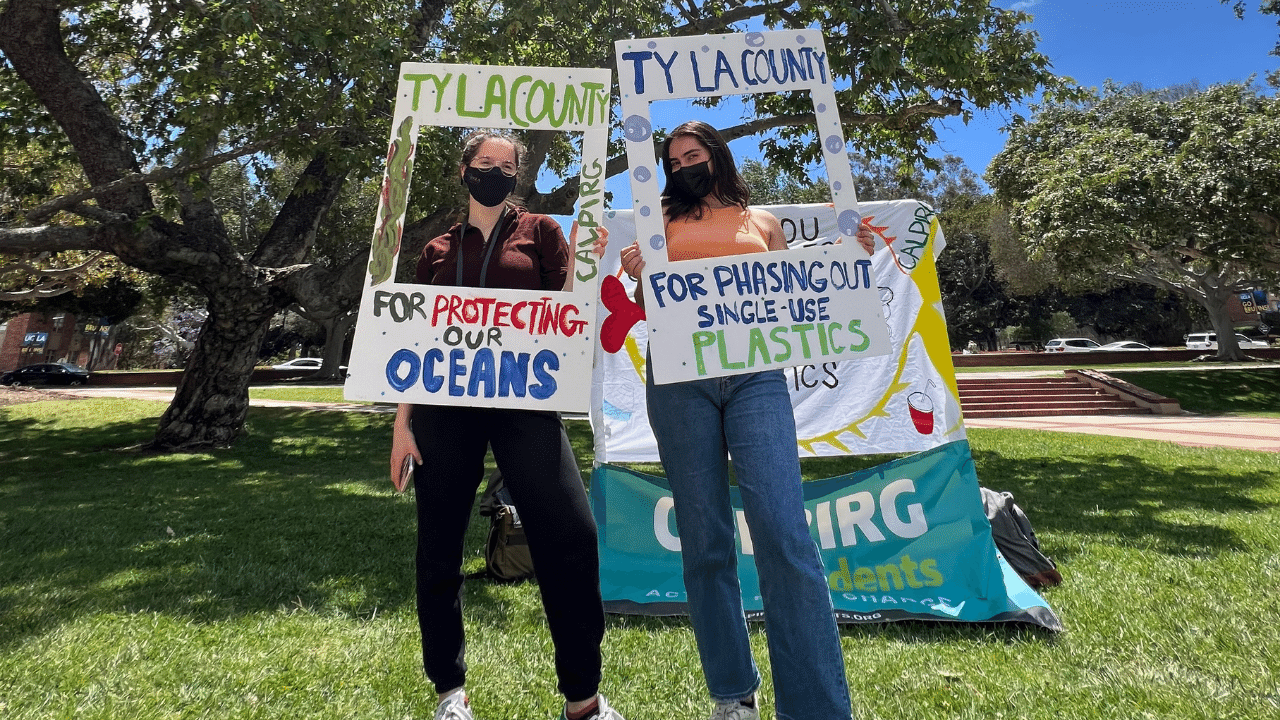
Working for Clean Energy in CA

Katie Wagman & CALPIRG Students
My name is Katie Wagman, and I am a first year, public affairs major at UCLA, working as the campaign coordinator for the 100% campaign at our chapter, as well as being the Member at Large for UCLA on the Board of Directors. Climate change is one of the biggest issues this generation is facing, and as someone who has lived in California my entire life I know just how big of an issue this is. We had to wear masks far before Covid 19 was ever an issue, and had to miss school long before Zoom was acceptable for a classroom. The cars we use burn fuels that hurt the environment, and consequently, ourselves. To stave off the worst effects of climate change and deliver cleaner air to communities, we must reduce the quantity of greenhouse gasses we are putting into the atmosphere. The #1 source of greenhouse gas emissions in the state is from vehicles and the fuel they burn. I was drawn to the campaign because I believe that the GoEV resolution could help us create a better future. Expanding the infrastructure of electric vehicles can combat the harm of fossil fuels from cars and prevent future generations from ash covered cars and emergency evacuation bags.
We have seen so much support on campus for this, with hundreds of students signing our petitions, taking photos with our campaign signs, and sharing personal stories about why they care! We have had many lobby meetings with the LA City Council to deliver sign-ons and letters from students. We’re excited to share that council members are now reviewing the GoEV Memo and deciding how to best implement it!
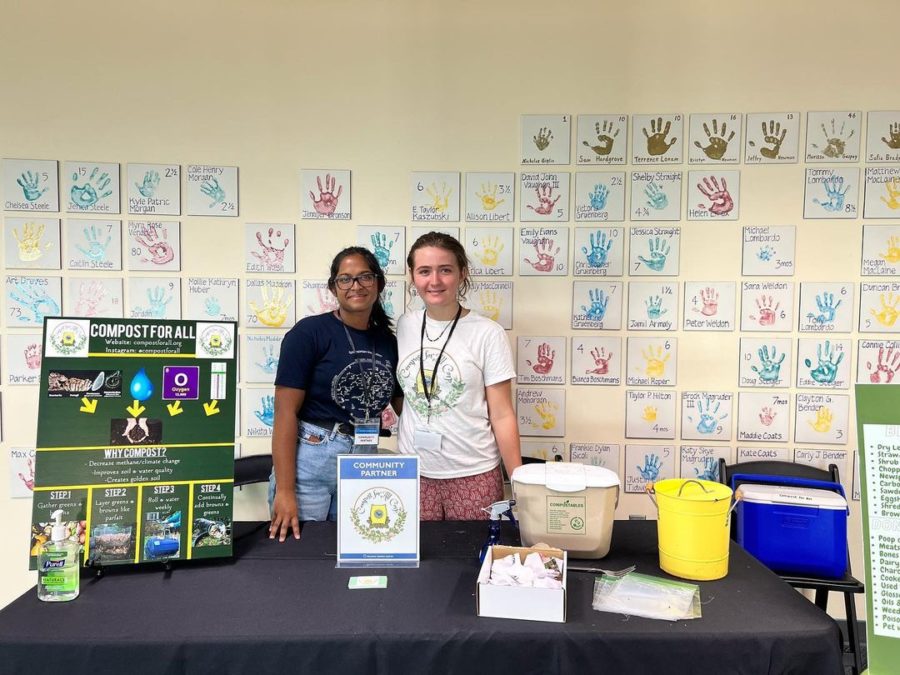
Compost For All

Maya Lis
About two years ago, as I sat on my floor amidst the pandemic thinking, I couldn’t get the picture of the deteriorating environment out of my mind. I felt that with the lack of composting accessibility within Orlando, it was time to take a stand. So, I began planning a nonprofit aimed to reduce greenhouse gasses while improving soil and water quality throughout Orlando Florida. I entered the TCI Hackathon which gave my team a wonderful opportunity to come up with a thorough plan.
From the competition, although unsuccessful, we went on to receive funding and were able to begin the non-profit.
Today, Compost For All Corp. is a 501 (c)(3) certified nonprofit with over 500 composter sales and has educated over 10,000 people on the power of composting!
Learn more about Compost For all here: https://www.compostforall.org/home
From Climate Anxiety to Climate Activism

Siyeon Joo
Hi there! My name is Siyeon Joo, and I am a 15-year-old South Korean native living in Lafayette, Louisiana.
When people ask where I am from, I like to say that I live in a sinking bayou. Unsurprisingly, Louisiana has a lot to offer, and a lot for me to worry about as a climate activist. My story as an activist starts with civic unrest…during a global pandemic. However, it has brought me to becoming an ambassador for TCI and beginning my busiest year yet.
My project is unique because of its feasibility and widespread engagement. My biggest challenge is getting people to care about how something as grand-scale as the climate crisis pertains to them. Nevertheless, with the help of TCI (specifically my regional coordinator, Caitlin Neal-Jones), I was able to connect with my local library to discuss and highlight a climate-fiction book for our teen book club.
That being said, I hope you enjoy my presentation about how these two activities have created a project that is truly a dream come true for any activist. Thank you TCI for supporting me and allowing my voice to raise among many on this platform and within my community!
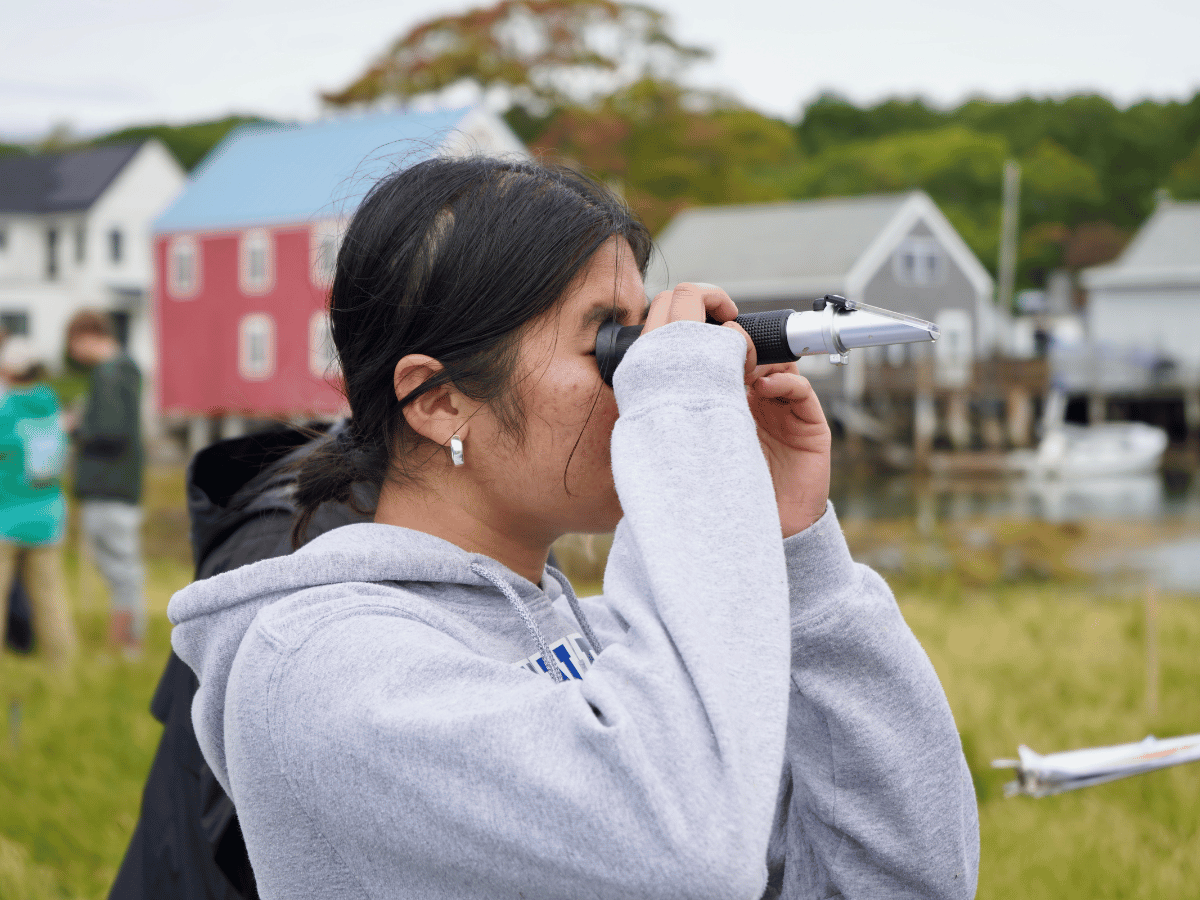
Experiencing The Gulf of Maine Field Studies Class

Samantha McGrath
This last school year I was fortunate enough to take my school’s Gulf of Maine Field Studies class. In this class, I was able to learn about how climate change impacts my local community, in all aspects. The class taught me about how my own backyard will be affected by sea level rise, and how my community will suffer from it. My town, and the ones around it, are heavily affected by the rising sea levels, eroding shorelines, and invasive species magnifying these problems. Not only is the ecosystem and biodiversity of the environment affected by these issues, but the local economy is affected as well. Since it is so reliant on tourism and sea food, with rising sea levels brings less beach to enjoy, and invasive species threaten the local marine life. Sea level rise also floods the marshes and estuaries, which could lead to flooded properties and roads.
The Gulf of Maine Field Studies class not only taught me about these problems, but also allowed me to connect with my community on how we can solve them. During the class, I was able to learn about living shorelines, and how they may be a viable option for mitigating coastal erosion. Living shorelines is an erosion prevention method that uses natural materials to stabilize the shoreline, reduce erosion, provide habitats to local species, and maintain the aesthetic beauty of the shoreline. The class presented this potential solution to the community through a series of community conversations and a community field trip. I appreciated learning how to engage the local people in what we were doing, and how to collaborate with them on a common problem. Even if this solution is not a complete success, this class allowed me to learn more about how important it is to involve the local community, and how I am not alone in the fight against climate change.


From Paralysis to Power: Finding my voice in the climate conversation
Jessie Cohen
Young people have been bombarded by stories of climate doom our entire lives. Growing up in Michigan, climate news often centered around freshwater scarcity, and how people were going to be flocking to the Great Lakes and “stealing our water”. I heard these messages so often that I, as a young child, tried to limit my water intake. Large media organizations such as the New York Times or CNN regularly published stories espousing climate milestones that humanity needed to reach, or not reach, to “save the planet”. When I was five, Al Gore’s Oscar-winning documentary “An Inconvenient Truth” hit theaters and brought with it a fresh wave of climate terror. Eleven years later, “An Inconvenient Sequel” rocked audiences again, myself included. All of this punctuated by the ever present WWF ads featuring polar bears drifting away on pieces of ice just barely big enough to carry them.
As evidenced by these examples, my understanding of the climate emergency has been shaped by the media from a young age. Watching all this unfold, I felt, and still feel, a strong sense of urgency and an obligation to be part of a solution. However, through all of this, I never gained a real understanding of what I could do as a relatively powerless (or so I thought) young person. Enter The Climate Initiative.
When I came across The Climate Initiative, my mindset toward climate advocacy was one of desperation but no direction. This is not uncommon among young people; a study by the American Psychology Association shows that about 84% of Americans aged 16-25 suffer from “climate anxiety”. Often, the emotional distress of climate anxiety is enough to cause “eco-paralysis”, where individuals feel too overwhelmed by grief to do anything at all. This is a huge issue impacting people across the country and the world, and contributes to inaction.
I am a victim of climate anxiety, and was, to a large extent, affected by eco-paralysis. Until I started reading stories from TCI. Unlike so many outlets, mainstream media and nonprofits alike, The Climate Initiative acknowledges the scale of the problem, but also actively seeks to instill a sense of hope. Through TCI I also found other organizations that centered their messaging around hope and solutions, not fear. For the first time, I felt empowered about my ability to be a part of real change.
As an aspiring environmental advocacy writer and journalist, I feel my place in the climate justice movement is to tell stories to inform and empower audiences. My experience learning about climate change (and other social issues) through various forms of media has taught me just how much power the media holds in our society. It can either be a major contributor to the problem, or a major player in the solution, and unfortunately it seems to have created more problems than it has solved in its portrayal of the climate crisis. Despite what I can only hope to be its best intentions, traditional media has been unsuccessful in its attempts to create meaningful change because of its emphasis on fear rather than hope. I strive to do what the media I consumed my entire life did not; empower people to make change instead of overwhelming and paralyzing them. By presenting information in a way that conveys urgency but does not add to feelings of climate anxiety that can cause inaction, we can grow the climate movement in a huge way, and this is what I hope to accomplish with my writing.
Since I began writing about these issues, I have developed a greater sense of confidence in my ability to be a leader in the climate conversation. I feel more informed and better able to have productive conversations with people in my life about the issues and what they can do to make change. Suddenly, I have been able to take issues that cause me so much anger and fear and discuss them in a way that feels constructive. My writing has included shedding light on the existence of sacrifice zones, discussing the greed of Big Oil, and providing guidance for individuals voting in the 2022 elections on the environmental track record of their candidates. Looking to the future, I am excited to continue to use my voice to keep audiences up-to-date on the latest environmental news and other topics that spark hope and can empower people to get involved, such as the indigenous-led fight for land rights and environmental reform.
Being able to be part of the climate conversation through my writing has given me a sense of power, courage, and hope. Best of all, the platform I have used to make my voice heard is available to almost everyone; the internet. In terms of communicating a message to a large group of people, there is no better resource than the internet. For better or for worse, the internet is a place where all voices can be heard. Anyone can post information on their Instagram or Twitter page and enter into a conversation. This is an enormous amount of power, and it is crucial to acknowledge that for this movement to maintain credibility, activists need to use it responsibly. Content with inaccurate or exaggerated information has the ability to reach a huge number of people and can derail momentum toward legitimate action. Keeping this in mind, with an understanding of the influence of media and the ability to communicate with vast audiences at our fingertips, we all have the ability to become leaders in the fight for climate action.
– Jessie Cohen
Read Jessie’s blogs here
Creating (climate) community for youth

Pooja Tilvawala
Description: Pooja’s plan to empower other youth around the nation, and world, became a reality when she won TCI’s first #ClimateCareer Competition in Fall 2020. Watch Pooja’s video about the creation of Youth Climate Collab and check out the links below to learn more about Pooja’s Story of Change through youth engagement.
Climate Career Reflections & Learnings
Pooja’s Takeaways from COY/COP26
Register for an upcoming Climate Courage Workshop
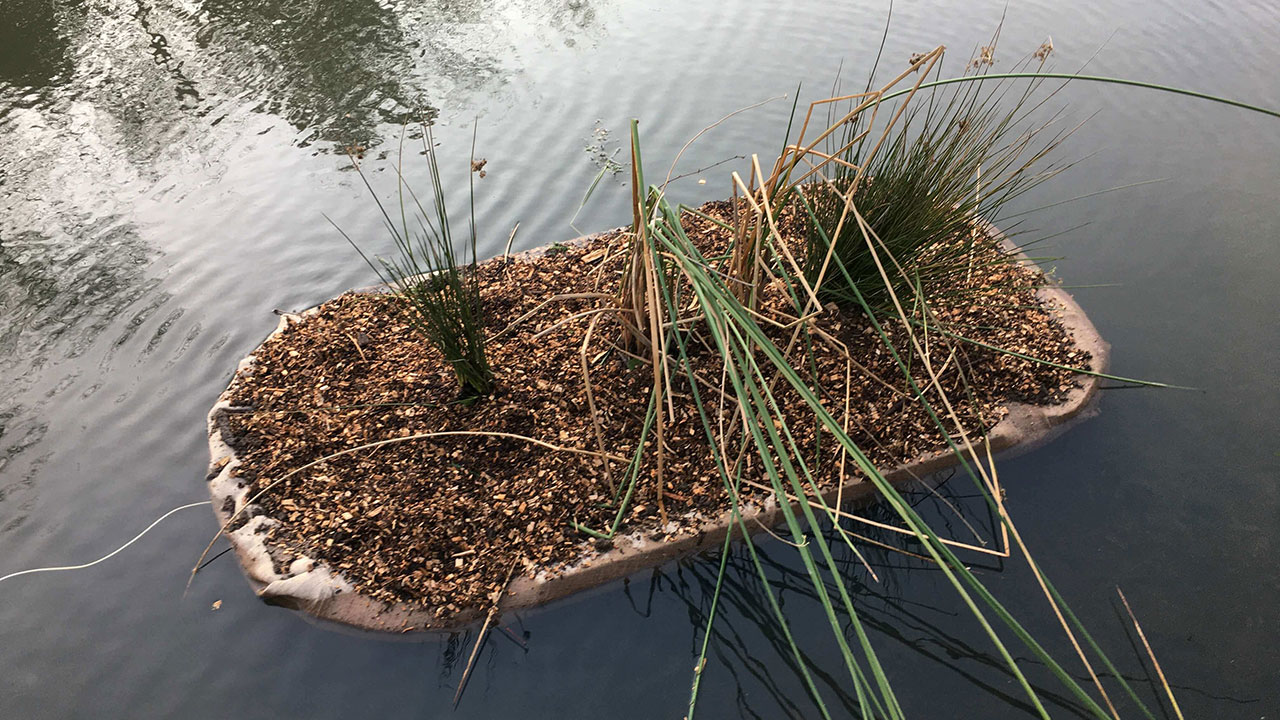
Creating a “hack” for eutrophication

Phoebe Jiang, Makayla Glover, Grace Goodhue, Jasmine Mon
As part of TCI’s first ever Soil and Water Hackathon competition, high school student team members of “The Mustangs” were motivated to combat the issue of eutrophication. Eutrophication occurs when a layer of excess minerals and nutrients forms on top of a body of freshwater. This results in a drastic increase in algae blooms. The algae blooms decrease oxygen levels, which causes fish to suffocate and die. The dead fish emit a foul odor, attracting a high mosquito population. The Mustangs’ school, located in the Salinas Valley in California, is surrounded by farmland and fertilizer runoff causes problems in surrounding bodies of water. Their biology teacher, Mr. Smith first presented the students with the idea of floating wetlands as a solution to the eutrophication in their campus ponds. The students were intrigued about this unique solution and developed their winning climate action “hack”: building floating treatment wetlands to remediate eutrophied pond water and provide habitat for wildlife. Learn more about The Mustangs plan via the below links!
Mustangs Blog Post
Updated Project Presentation
About TCI’s Hackathon Competition
Educating community about climate change

High school students in the Gulf of Maine Field Studies Class at Kennebunk High School hosted two community conversations in the 2021/2022 school year. The Community Conversations model from TCI consists of communication exercises, participatory mapping, and a climate change simulation. Each activity is designed to help people relate their personal places to the larger picture of climate change. Working together to go through this process, and when led by disarming youth voices, communities collaborate on determining what places are of most importance, and ways to effect change. The workshop ends in a brainstorming session on what actions are necessary to move forward toward climate mitigation, and if that’s not possible, adaptation practices and policies to be explored.
“I was blown away by the students’ work, presentations, and in-depth knowledge. From invasive species to shoreland erosion to community resilience, these high school students are completing high-level research on topics that communities need to be aware of. The Community Conversation was so powerful that it stuck with me through the week. After participants learned some communication and listening tools, the students skillfully facilitated small group discussions on challenging topics. Every community needs Community Conversations!” Eli Rubin, Town of Kennebunkport Town Planner.
Learn how to host your own Community Conversation and what other climate action projects the Gulf of Maine Field Studies students are up to:
Community Conversation Toolkit
Gulf of Maine Field Studies Class Website and Current Projects
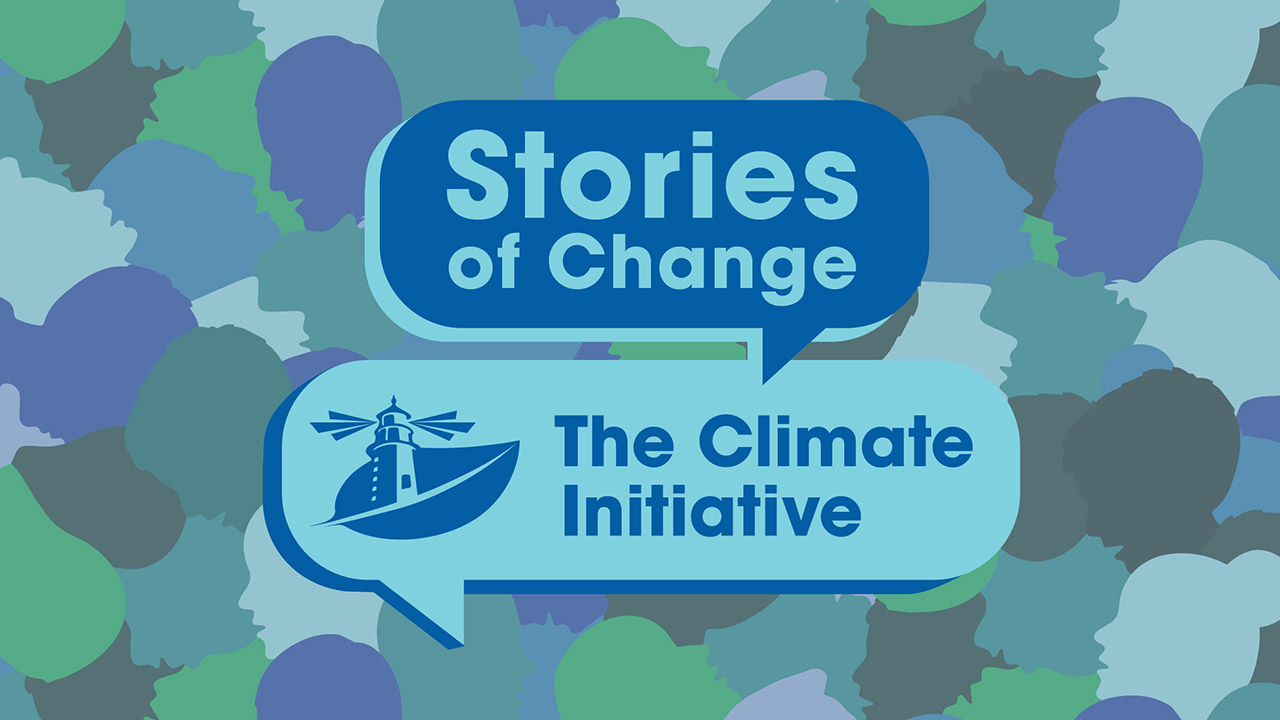
Your story goes here!

We can’t wait to showcase your story next!
Share your Story of Change
Story of Change Submission Best Practices & GuidelinesSubmit your Story of Change!
Questions about your submission?
Reach out to programs@theclimateinitiative.org | Subject: Stories of Change
Submit your Group Story of Change!
Questions about your submission?
Reach out to programs@theclimateinitiative.org | Subject: Stories of Change
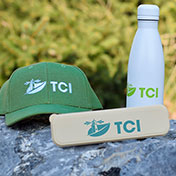
Submit your story & get free merch!
Every submission receives an eco-conscious TCI merch kit! *U.S. only submissions receive merch kits.


